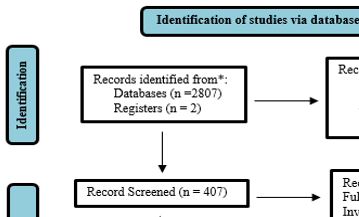Factors that Influence the Management of Type 2 Diabetes Mellitus among Adults in Nigeria
A Systematic Review and Meta-Analysis
DOI:
https://doi.org/10.54117/ijph.v4i2.29Keywords:
Diabetes mellitus type 2, Etiology in Nigeria, Management and interventionAbstract
Introduction: A sizable fraction of Nigeria's adult population suffers from type 2 diabetes mellitus (T2DM), a chronic illness. To lower the disease's morbidity and mortality, T2DM must be well managed. The objective of this systematic review is to locate and summarize recent findings on the factors that affect the management of T2DM among adult populations in Nigeria.
Methods: To find pertinent studies released between 2012 and 2022, a thorough search was carried out using electronic databases, such as PubMed, MEDLINE, and Science Direct. The final analysis comprised data from 14 research works. For analysis and discussion, the study used a mixed-methods research design that included both qualitative and quantitative data. For this review, the Critical Appraisal Skills Programme (CASP) method was used to appraise each article's quality.
Results: The results indicated that several factors affect the management of T2DM among adults in Nigeria. These factors include poor health, illiteracy, inadequate access to healthcare facilities, cultural beliefs, lack of social support, low medication adherence, and poor lifestyle choices. Additionally, the review revealed that there are challenges to implementing effective diabetes management programs in Nigeria, such as inadequate funding, limited resources, and a lack of trained healthcare professionals. Furthermore, this study identified several interventions that could improve the management of T2DM, including community-based interventions, patient education, and task shifting.
Conclusion: The findings provide insight into the factors affecting the management of T2DM among adults in Nigeria. The study highlights the importance of a multifaceted approach to diabetes management that addresses the social determinants of health, promotes patient education and self-management, and leverages community-based interventions. Additionally, this review underscores the need for increased funding and resources to support diabetes management programs in Nigeria. Further research is needed to evaluate the effectiveness of these interventions in improving diabetes management in Nigeria.

Downloads
Published
How to Cite
Issue
Section
License
Copyright (c) 2024 Clara O. Esan, Connor Ratcliffe, Justina Y. Talabi, Rodrigo Diaz-Martinez, Victor N. Enujiugha

This work is licensed under a Creative Commons Attribution 4.0 International License.
